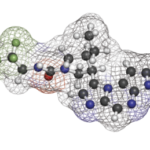“Despite many advances in JIA treatment development, challenges remain,” Dr. Nikolov said. JIA is a heterogeneous group of rare diseases that have pediatric-specific manifestations. Concerns about the use of placebo in trials involving children and lingering uncertainty about trial endpoints all make designing and conducting pediatric studies challenging.4
To address these challenges, in October the FDA convened a one-day workshop called Accelerating Drug Development for Polyarticular JIA, which included ACR and patient representatives. Topics included efficacy data extrapolation from adult arthritis studies, modeling and simulation, trial design, dose selection, and the levels of evidence needed to establish safety and efficacy in pediatric patients with polyarticular JIA.
At the workshop, attendees discussed how evidence to support a drug’s use in children may be extrapolated from controlled studies in adults. This approach is based on an understanding of the degree of disease and drug response similarity between adults and pediatric patients that can be measured on a continuum, with “no overlap between the adult and pediatric conditions at one end, and significant overlap and no significant differences at the other end,” he said.
“During the discussion, one thing became clear. Differences in nomenclature between adults and children have created considerable uncertainty on how to apply the principles of extrapolation. In that respect, these challenges can have a direct impact on drug development in JIA,” said Dr. Nikolov. “But they can also have a direct impact on patient care by making it difficult for some pediatric patients to transition to adult care.”
At the workshop, attendees agreed that polyarticular JIA and adult RA were sufficiently similar, and that rationales for dosing in JIA programs have relied on matching effective pharmacokinetic exposures in adult RA patients. Extrapolation of efficacy from adults with RA to children with polyarticular JIA based on exposure matching may be scientifically justified, particularly for products with established mechanisms of action. There are uncertainties with this approach, mainly that dosing and safety cannot be extrapolated and would have to be studied, and that products with new mechanisms of action may have a limited amount of information for extrapolation.
Attendees also discussed ways to address these uncertainties, said Dr. Nikolov. Example: Adult and pediatric rheumatic disease nomenclature could be reconciled when it’s justified, and investigators could use a quantitative, Bayesian statistical approach when borrowing information from adult studies for use in pediatric trials, as was done in an intravenous belimumab trial presented at the ACR/ARP Annual Meeting.5



